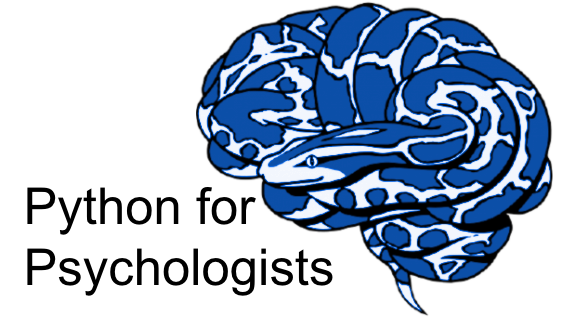Analyses III & Finale
Contents
Analyses III & Finale¶
With this session, we conclude the final chapter of our endeavor. After spending quite a good while on basic data handling and data wrangling, we will continue with data visualization and data analyses using python. This includes a brief showcase of several distinct aspects/steps in a “classic” data analyses workflow: data visualization for explorative and statistical purposes, as well as statistical analyses. As usual the aim is to provide folks a respective overview that allows them to dig further into details and start using python for their data analyses after the course ends. Furthermore, this will mark the end of the course and will thus spend some time on recapping the things we have talked about, provide & discuss feedback, do a general Q&A, as well as have a little party!
Topics 💡👨🏻🏫¶
In the following you’ll find the objectives and materials for each of the topics we’ll discuss during this session.
Introduction to Data analyses - III¶
Sure, most of us already conducted some analyses here and there but did you already make use of the fantastic world of data analyzes using python with its tremendously powerful go-to modules and basically unlimited amount of highly specialized libraries? No matter what you’re looking for and want to work on, python’s got your back! Given the short amount of time we have, this session will focus on one of the central modules concerning data visualization and statistical analyses. In more detail, we will visualize and analyse the data we obtained during the PsychoPy sessions via different means.
Objectives 📍¶
learn basic and efficient usage of python for data analyzes & visualization
working with data:
reading, working, writing
preprocessing, filtering, wrangling
visualizing data:
basic plots
advanced & fancy stuff
statistical analyses
Ask and answer questions
Have a great time
Materials 📓¶
Please see the rendered version of the jupyter notebook Data analyzes II - data visualization and analyses in the ToC on the left.
The grand finale¶
As mentioned above, this will be the final seminar of the course and thus we will have a look back, talking about the things we discussed in the last 3 months. This will entail a brief recap, as well as a general feedback & discussion round. Additionally, we will provide final pointers regarding the grading and the respective tasks. For those that are interested there will also be a (virtual) party!
Objectives 📍¶
get final pointers re grading
provide some feedback & discuss everything
Ask and answer questions
Have a great time
Materials 📓¶
You can find the slides here:
tasks for subsequent meeting 🖥️✍🏽📖¶
Your ninth homework assignment will entail working through a few tasks covering the contents discussed in this session within of a jupyter notebook. You can download it here. In order to open it, put the homework assignment notebook within the folder you stored the course materials, start a jupyter notebook as during the sessions, navigate to the homework assignment notebook, open it and have fun!
Deadline: 16/02/2022, 11:59 PM EST
finals 🖥️✍🏽📖¶
As outlined in the slides, there will be two parts to the final exam:
a
jupyter notebookthat recaps the introduction block and is basically a longer version of ahomework assignment, you can find the notebook herea
jupyter notebookcreated by you that showcases a classicaldata analyses pipeline/workflow(includingdata exploration,data visualization,data analyses) on a self-chosen public dataset
Deadline for both: 31/03/2022, 18:00 PM CET
Optional:
If you are interested in using python for a specific task/problem/analyses/etc. or have general questions, please send us a message and we can organize a meeting to check things out!
If you are interested in participating in the add-on PsychoPy workshop mentioned in the slides, please send us a message so that we can plan things further!
optional/reading/further materials¶
Python courses¶
Here’s a list of fantastic other python introduction courses with a focus on working with data:
https://statsthinking21.github.io/statsthinking21-python/
https://valdanchev.github.io/reproducible-data-science-python/intro.html
https://psychology.nottingham.ac.uk/staff/lpzjd/psgy1001-21/
More showcases¶
Additionally, we compiled a collection of jupyter notebooks showcasing a broad collection of python modules, including “general” and “specialized” applications. You can find out more about that here.
